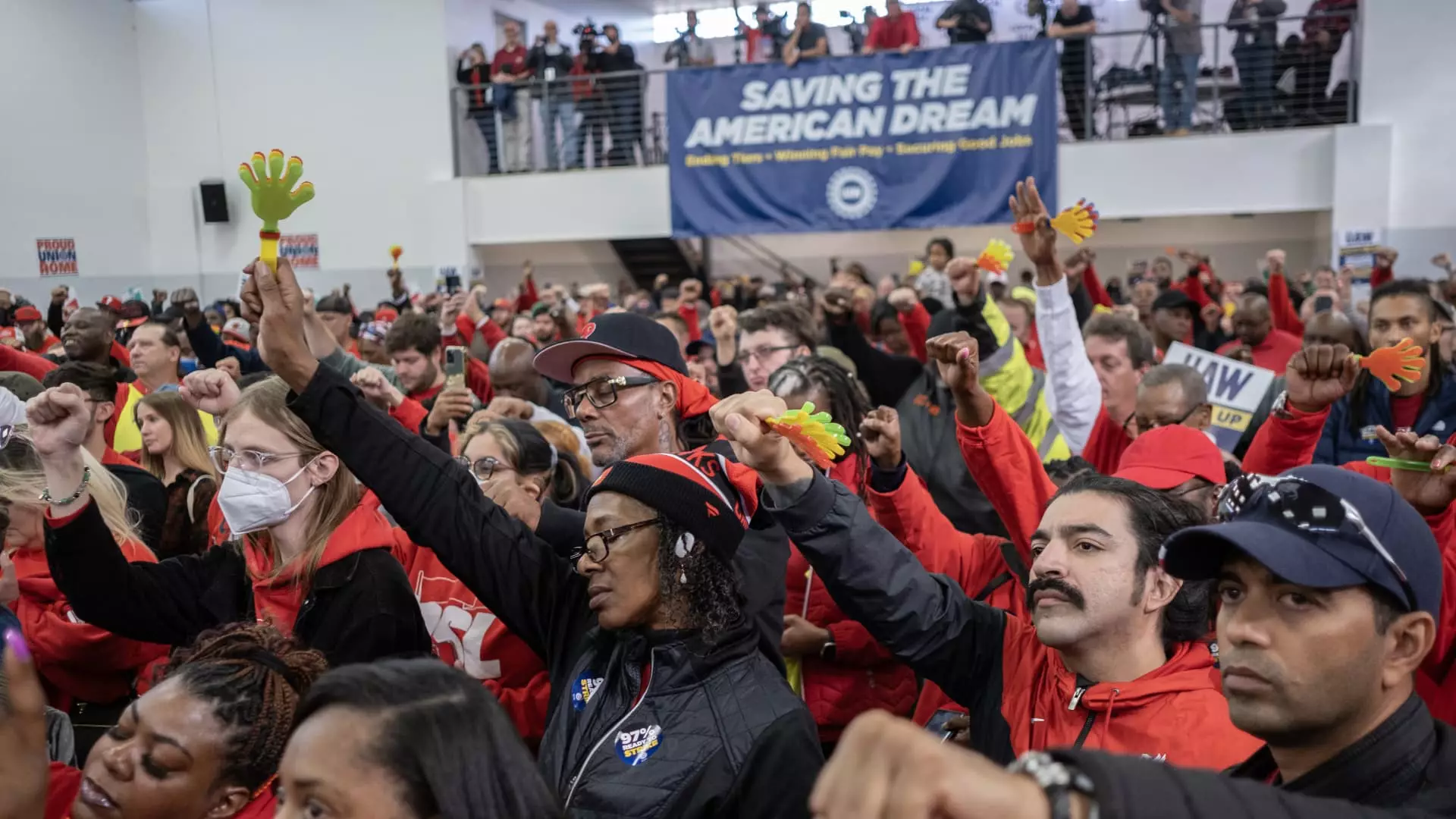The United Auto Workers union is pushing for more gains in the ongoing contract negotiations with the Detroit automakers, despite receiving record contract offers. UAW President Shawn Fain expressed that while the current proposals include significant benefits and pay increases, “there is more to be won.” This article will delve into the latest developments in the negotiations and the union’s perspective on the offers.
Despite the UAW’s desire for further gains, the union did not announce any additional strikes against the companies. Fain stated that there are still “cards left to play” and emphasized that the Detroit automakers have the financial capacity to meet the union’s demands. While the union has not confirmed the specifics, Bloomberg reported that the UAW has requested a 25% increase in general wages.
Although Ford’s proposal offers the most favorable economics, Fain heavily criticized the comments made by Ford Chair Bill Ford, who suggested that the UAW and Ford should unite against foreign automakers. Fain made it clear that the UAW’s era of aligning with Ford against other companies is over, emphasizing that non-union autoworkers are not the enemy but rather the union’s future union family.
Ford expressed eagerness to conclude the negotiations with a contract that benefits its workers, noting that its current offer is the best on the table. Stellantis commented that negotiations continue to be productive, building on the momentum from previous weeks. General Motors declined to comment specifically on Fain’s remarks, citing the details they released regarding their latest offer. Despite the varying responses, the UAW has not initiated additional strikes at GM or Stellantis, signifying ongoing negotiations.
The UAW’s recent strike at Ford’s Kentucky plant, which produces highly profitable pickup trucks and SUVs, marked a significant escalation in their targeted strikes. This approach represents a departure from previous strategies, where the UAW publicly announced its targets before initiating work stoppages. The union has been gradually increasing strikes since September 14 when tentative agreements were not reached. Around 34,000 U.S. automakers, accounting for approximately 23% of UAW members, were on strike against the Detroit automakers.
Here is an overview of the current proposals made by the Detroit automakers to the UAW:
Wages
All three automakers have offered a 23% pay increase over four and a half years.
Wage Tiers
All three automakers have agreed to eliminate wage tiers at parts facilities where workers have historically been paid less than production-line workers.
Wage Progression
Ford and GM have offered a three-year progression to the top wage rate for current workers. However, GM proposes a more gradual four-year progression for future hires. Stellantis has only offered a four-year progression.
Cost of Living Adjustments (COLA)
Ford has offered to restore its COLA formula to the level last used in 2009, meeting the UAW’s demand. GM is approaching restoration but has not fully met the requirement, and Stellantis wants to delay cost-of-living adjustments by a year.
Job Security
Ford and Stellantis have agreed to grant the union the right to strike over plant closures, a crucial UAW demand. GM, however, has rejected this demand.
Temporary Workers
Ford has proposed converting current temporary workers to full-time employees after 90 days of service, with an increase in wages for remaining and future temps. GM has suggested converting both current and future temp workers to full-time after one year of service. Stellantis plans to convert thousands of current temps to full-time status but has not specified their stance on future temps.
Retirement Plans
All three automakers have offered improvements to retirement plans, including increased pension benefits and enhanced 401(k) contributions.
Profit Sharing
Ford intends to improve its existing profit-sharing formula and make temp workers eligible for profit-sharing payments. GM and Stellantis aim to maintain their current profit-sharing formulas, with GM offering eligibility for temp workers with 1,000 hours of service.
Work-Life Balance
All three automakers have proposed making Juneteenth an official paid holiday and providing two weeks of paid parental leave.
Inadequate Offers
Fain expressed disappointment with the offers from all three automakers, stating that they are “deeply inadequate” to address the needs of UAW members. While these proposals may be considered record contracts, Fain contends that they are insufficient given the decades of decline experienced by auto workers.
The UAW remains resolute in its pursuit of further gains in the ongoing contract negotiations. Despite receiving record contract offers, the union believes that there is more to be won to reverse the decline experienced by auto workers. As negotiations continue, the UAW remains committed to fighting for the best possible outcomes for its members.


Leave a Reply